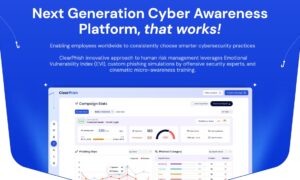In a world where cloud-based infrastructure supports everything from hospital systems to public finance and critical communications, cybersecurity has become a cornerstone of national security. At this critical intersection of cloud computing, AI, and network defense stands Yanlin Liu, a systems engineer whose work is quietly shaping the backbone of secure digital operations across the United States.
In today’s digital-first world, where every organization—from hospitals to government agencies—depends on resilient infrastructure, few engineers are tackling cybersecurity at both the architectural and societal level. One of them is Yanlin Liu.
A senior software development QA engineer at Fortinet and a Columbia University-trained systems specialist, Liu is behind several foundational efforts to make cybersecurity infrastructure more performant, intelligent, and open to the world. His latest work—the FortiADC Ingress Controller, a cloud-native application-layer security gateway—has been downloaded over 6,000 times from Docker Hub and is now in use across a global community of developers, startups, and institutional teams. But for Liu, it’s not about numbers. It’s about access.
“Security shouldn’t be locked behind enterprise paywalls,” Liu says. “My goal is to build tools that anyone—regardless of size or budget—can use to protect their systems.”
That goal has taken shape in code. The FortiADC Ingress Controller integrates intelligent traffic routing, application-layer inspection, and AI-enhanced policy enforcement—all while running natively in Kubernetes environments. It helps small engineering teams adopt enterprise-grade protections without the overhead of proprietary platforms. And critically, it is open-source, offering a security solution that transcends vendor lock-in and benefits the public internet at large.
Beyond his open-source contributions, Liu has also delivered significant advancements inside Fortinet’s commercial portfolio. His integration of Single Root I/O Virtualization (SR-IOV) into the FortiADC architecture led to a 50% performance gain, drastically improving data throughput for cloud deployments. This isn’t just technical tuning—it’s national impact. In a climate where application lag or service downtime can cost U.S. businesses millions per hour, Liu’s work has enhanced the resilience of enterprise and public-sector networks alike.
He also brings AI into the cybersecurity fold. Liu introduces an AI Threat Analytics engine, designed to detect unknown attack patterns and rapidly surface zero-day risks. By marrying traditional rule-based defense with predictive modeling, his work has given thousands of clients a smarter shield against modern cyber threats.
But what sets Liu apart is the broader orientation of his work. “I’m focused on infrastructure that outlives any one company,” he says. And that’s exactly what his projects represent—technologies designed not only to serve employers or customers, but to raise the floor of digital security for everyone.
Liu has also served as a judge and mentor at several international hackathons, including the CODE CRUNCH 305 Hackathon, CodeStorm, and PortXFolio, where he’s evaluated emerging technologies with a focus on secure architecture and responsible AI. His feedback, rooted in both deep technical insight and real-world deployment experience, has helped shape the thinking of the next generation of system builders.
In an era of widening threat surfaces and deepening infrastructure dependence, engineers like Yanlin Liu play a quiet but crucial role: ensuring the digital systems that society relies on are built not just for performance—but for protection.
“Infrastructure is about trust,” Liu says. “And trust, at scale, starts with open, secure foundations.”



































